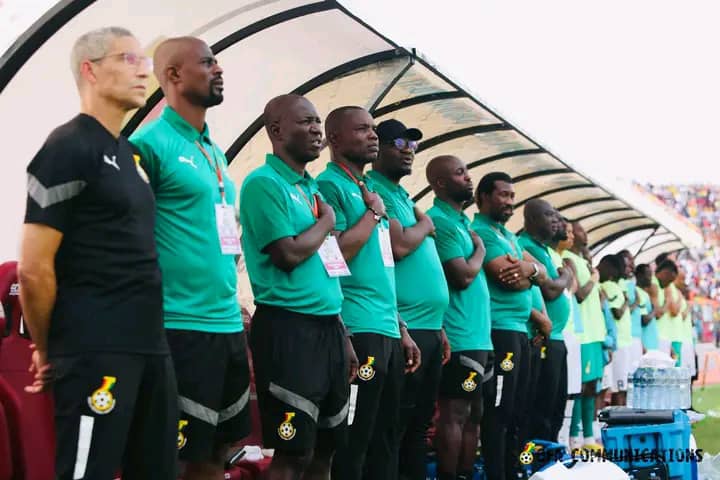Following Ghana’s disappointing performance at the 2023 Africa Cup of Nations (AFCON), the swift actions of the Ghana Football Association (GFA) to recruit a new coach have sparked public outcry. The frequent coaching changes over the past five years have raised concerns about the financial toll on the Black Stars machinery.
Former coach Hughton, who left his €46,000-per-month job after 11 months, may seek compensation for the FA’s decision to terminate his contract, which was expected to run until December 2023. The coach’s contract included a review clause after the AFCON, a key performance indicator, leading to his departure.
Compensation is not a new theme, as former coaches Akonnor and Rajevac were also due compensation after being sacked midway through their contracts. The financial storm intensified with the disclosure of substantial funds allocated to the Black Stars, reaching GHS27,967,036.34 for various activities, including AFCON qualifiers and salaries.
The Ministry of Youth and Sports faced scrutiny over expenses, with GHS5,324,721.89 spent on airlifting supporters during the 2022 FIFA World Cup and $400 stipends to supporters sponsored to the 2023 AFCON. The public’s disappointment over the team’s performance has fueled a perception of over-pampered but underperforming players, contributing to a strained relationship between the public and the Black Stars.
Revelations of appearance fees, bonuses, and management committee payments have heightened concerns about financial prudence, especially given Ghana’s struggles at international competitions. The ongoing search for a new coach adds to the financial implications, with potential sign-on fees and performance-based incentives.
Former GFA vice-president Fred Pappoe cautions against excessive financial demands in the pursuit of a top-class coach, emphasizing the potential repugnance to the Ghanaian public. The situation calls for careful consideration of financial constraints amid the hunt for a new leader for the Black Stars.





0 Comments